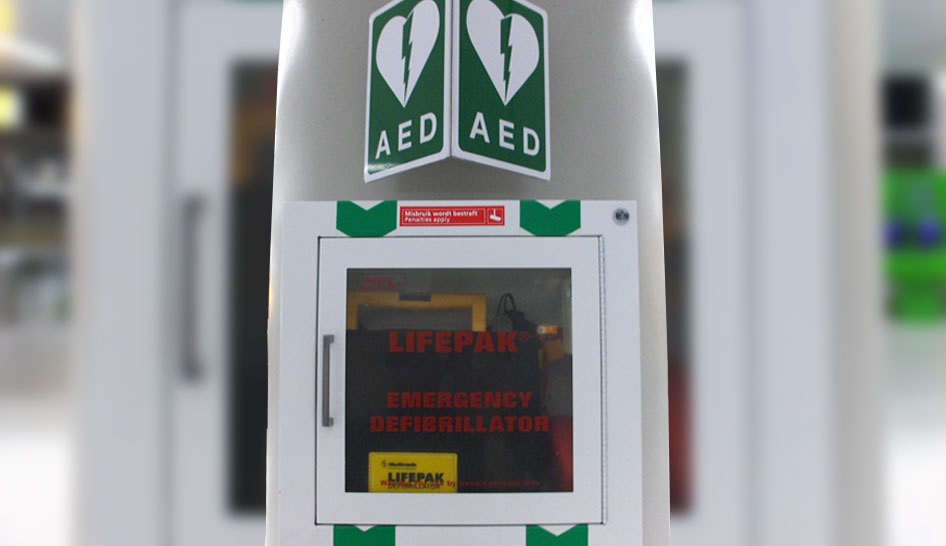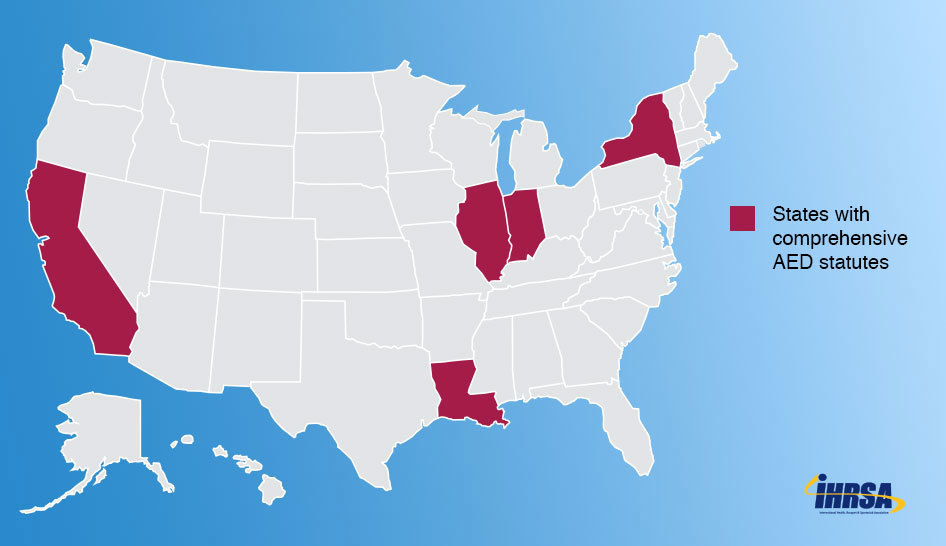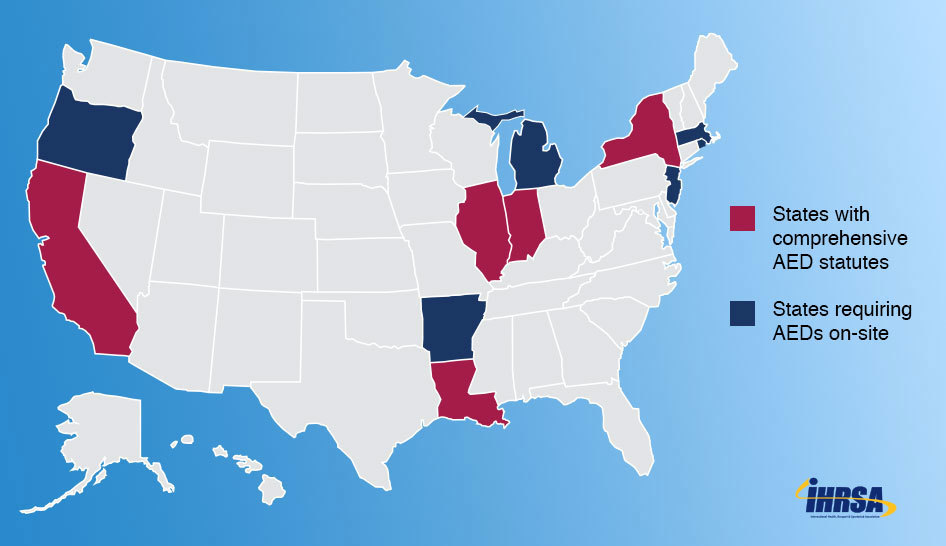It can be challenging for health club owners and operators to stay up-to-date with state laws and regulations that affect your clubs. With a million different things on your minds, it’s easy to lose track of individual laws.
AED Obligations Your Health Club May Not Know About
Are you aware of your legal obligations regarding automated external defibrillators (AEDs)? If not, here's exactly what you need to know.

For this reason, we'd like to remind you of your legal obligations regarding automated external defibrillators (AEDs). While the majority of states do not have AED mandates for health clubs, some states have extensive laws and regulations that require clubs to develop plans with local emergency personnel or a state agency.
Strict AED Statutes
The most comprehensive AED statutes exist in Illinois, Indiana, Louisiana, New York, and California. If you’re a club operator in one of these states, it may be a good idea to read the state health club statute on your IHRSA.org state page to make sure you’re complying with the law.

In Illinois, the law requires all health clubs to have an AED on-site and to submit a medical emergency plan with the state Department of Public Health encompassing AED use. Additionally, health clubs must provide emergency response plans to local emergency services detailing:
- the existence
- the location
- and the type of AED on-site
Health clubs in New York with 500 or more members are considered to be “public access defibrillation providers" and must have at least one AED on-site and develop a Public Access Defibrillation (PAD) program. Health clubs must adhere to numerous requirements to complete a PAD program, including:
- notifying the Regional Emergency Medical Services Council and the New York Department of Health of the intent to establish a PAD program
- designating a physician or nurse as an Emergency Health Care Provider
- reporting AED uses to the Regional Emergency Medical Services Council
Indiana health clubs with 50 or more members must also have at least one AED on-site and have at least one employee who has been trained in cardiopulmonary resuscitation and defibrillator present during all staffed hours. If a club allows members to workout when staff is not present, it must have signage warning members that they are working out alone and providing instruction on how to use an AED in an emergency situation. Additionally, the Indiana Fire Prevention & Building Safety Commission may inspect a health club at any time to ensure compliance with the law.
The Louisiana Health Club Statute stipulates that health clubs with 50 or more members must have an AED on-site and that upon acquiring an AED, a health club must notify a local provider of emergency services about the acquisition, location, and type of AED. Furthermore, health clubs must develop a program with a licensed physician or advanced registered nurse to ensure compliance with AED training and maintenance and emergency medical services notification.
Finally, every health club in California must keep an AED on-site and prepare a written plan outlining procedures in the case of AED use. The plan must include immediate notification of 911 and trained office personnel following the use of an AED. There are also numerous provisions relating to health clubs that are sometimes unstaffed.

Health Club Mandate
In addition to the states mentioned above, Arkansas, Massachusetts, Michigan, New Jersey, Oregon, and Rhode Island also have laws requiring health clubs to have an AED on-site. Wisconsin health clubs do not need to have an AED on-site, but they must ensure that staff has received AED training. Furthermore, health clubs in Pennsylvania must have AEDs if they are open during unstaffed hours. For more information about the AED laws in these states, please click on the individual state on the State Advocacy page to access the relevant information.
IHRSA recognizes that many health clubs may have AEDs regardless of whether there is a state mandate. It is important for health clubs to familiarize themselves with state laws related to general AED use to ensure that they are complying with the law.
IHRSA supports AED legislation that contains necessary liability protections, reasonable staffing requirements, and adequate compliance time. For more information, feel free to contact IHRSA’s advocacy team.

Matt O'Malley previously served as IHRSA's Public Policy Assistant—a position that included monitoring legislation that affects the industry at the state and federal levels and writing legislative alerts and articles on issues that affect IHRSA members.